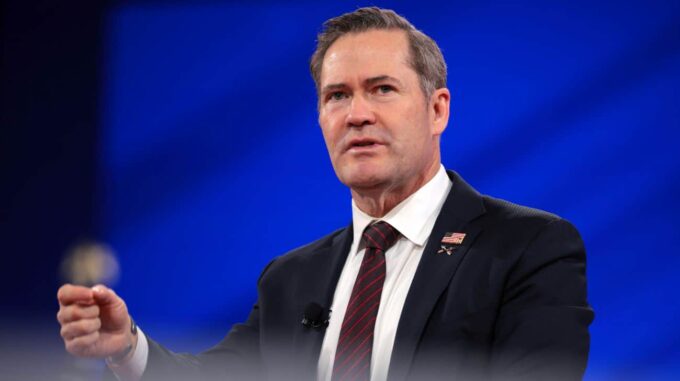National Security Advisor to US President Michael Wolff is leaving his position, which has come as a surprise to analysts and political observers in the United States

According to information provided by CBS, sources within the administration confirmed Wolff’s decision to step down and end his tenure at the highest level of the country’s security policy. As reported by the Ukrainian agency "European Pravda," this news emerged amidst internal upheavals and diplomatic challenges faced by the American administration, related to foreign policy priorities and internal disagreements over strategies to address global issues. Sources indicate that Wolff’s decision was the result of a prolonged internal discussion rather than an impulsive move. Michael Wolff, as is well known, has held this responsible position since 2019 and played an important role in shaping US foreign policy strategies. During his time in the White House, significant events took place—from tense negotiations with allies to complex relations with other global players. His departure could have substantial implications for internal administrative coordination on security issues and policy concerning key regions of the world. CBS notes that the reason for his resignation remains officially unconfirmed and is likely to become a subject of further public commentary from the White House administration. So far, US officials have not issued any official statements regarding the reasons or circumstances of Wolff’s resignation. Meanwhile, experts speculate that this departure might be the result of internal political conflicts, disagreements over approaches to foreign policy, or simply internal personnel upheavals within the administration. Given the importance of the national security advisor role, his resignation could introduce some uncertainty in the further diplomatic and strategic activities of the US. It is expected that the administration will soon announce a candidate for the new adviser and present a plan for future actions in the field of national security, which is especially relevant amid ongoing regional crises and increasing tensions ahead of upcoming international forums and negotiations. This news has already sparked widespread discussion among political analysts, security experts, and diplomats, as a change at the top levels of American power can influence the course of global politics, especially on issues of security and strategic US interests. At the same time, many experts note that such personnel reshuffles are part of routine processes in large state structures, often indicating internal changes and adaptation to new realities. It remains to be seen how the White House will respond with official statements and reactions, as well as which figures will replace Wolff. The course of US strategic policy and their approach to global challenges will largely depend on this.

